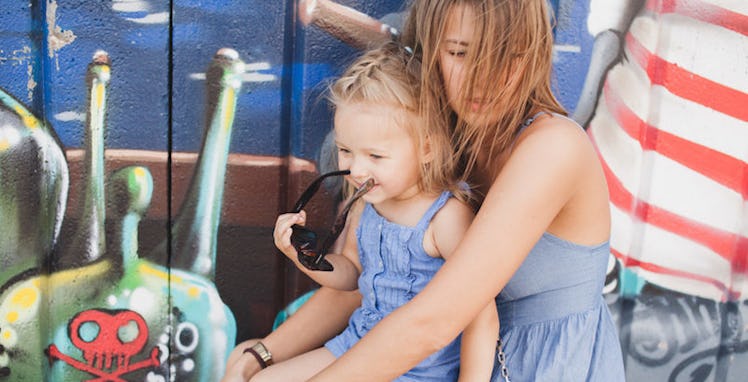
How Asking Celebs For Their Stance On Feminism Is The Most Anti-Feminist Thing Ever
While feminism affects everyone, it's completely unfair to expect young female celebrities to be experts on feminist theory.
In an era without Lilith Fair, using the phrases "pop star" and "feminist" in the same sentence seems more common than ever.
The year 2014 has become the year of pop feminism. Beyoncé led the way just before the new year when she sampled Chimamanda Ngozi Adichie's Ted Talk in the song “Flawless,” on her latest album. Adichie states,
We should all be feminists.
Feminism has since become the buzzword of the year. Reporters have begun asking every starlet who crosses his or her path whether or not she's a feminist. As a result, women have been coming out as feminists, or stating their disagreements with it.
The trend isn't exactly feminism itself, but rather, journalists pressing young female stars about the issue. It's worth noting that young male stars aren't usually subject to the same interrogations.
Essentially, entertainment journalists and bloggers are sorting women into two groups: the feminists and anti-feminists. Media inevitably pits the two groups against each other and, therefore, fans of the two groups against each other.
Pitting women against each other like that isn't the point of feminism at all. In fact, it's something feminism works actively against.
Feminism is about uniting people to actively pursue equal rights for women. Just last year, bloggers fueled a conflict between pop stars Lorde, Taylor Swift and Selena Gomez when it was reported that Lorde had labeled the music of the other two women as anti-feminist and irresponsible.
As frivolous as the story may have seemed, it had real implications when the musician's fans turned against the respective artists and against each other.
Pitting women against each other, specifically on the subject of feminism, has had real implications on young women who are now blindly denouncing feminism in favor of their favorite pop artist. This set the progress of feminism years behind.
Celebrities, like most women, all seem to have their own interpretation of feminism. From Shailene Woodley to Lena Dunham, celebrities are often called problematic or incorrect in their views on feminism.
Although she should have certain responsibilities as a role model, it's not Shailene Woodley's job to be an authority on feminism or a female and gender studies professor.
Furthermore, it's not the responsibility of journalists or reporters to police feminism. This trend of reporters asking young women like Woodley to articulate how they feel about feminism is putting more weight on them than necessary.
High expectations for feminists are good, but reporting on pop stars who make rape jokes, or who are complacent with the current state of affairs pushes the chasm between feminists and non-feminists even further.
Sure, painting a woman as anti-feminist will guarantee page views from outraged feminists, but it begs the question: Should pop stars and celebrities be the focus of feminism?
While feminism affects everyone, it's completely unfair to expect young female celebrities to be experts on feminist theory. It places an undue burden on women whose only job otherwise is to be entertainers.
Perhaps all this media coverage is an indication that education on feminism needs to change, and possibly needs to increase. The growing trend of asking young starlets to take a stance is not the right way to educate people about important issues.
Reporters are encouraging young women to learn about feminism through star-studded interviews, rather than reading something by writers like Bell Hooks.
Besides this, there are plenty of celebrities who already identify as feminists like Amy Poehler, Ellen Page and John Legend.
Entertainment publications interested in releasing pieces on feminism would be better served talking to well-informed, self-identified feminists, rather than prodding starlets about their political and personal beliefs.
I totally agree with Chimamanda Ngozi Adichie; we should all be feminists. We should all work toward equality and push the rock further for women everywhere. I believe in the spread of feminist messages through media, but women shouldn't be classified into two different groups.
Dividing ourselves is the antithesis of feminism.
Photo Courtesy: Instagram